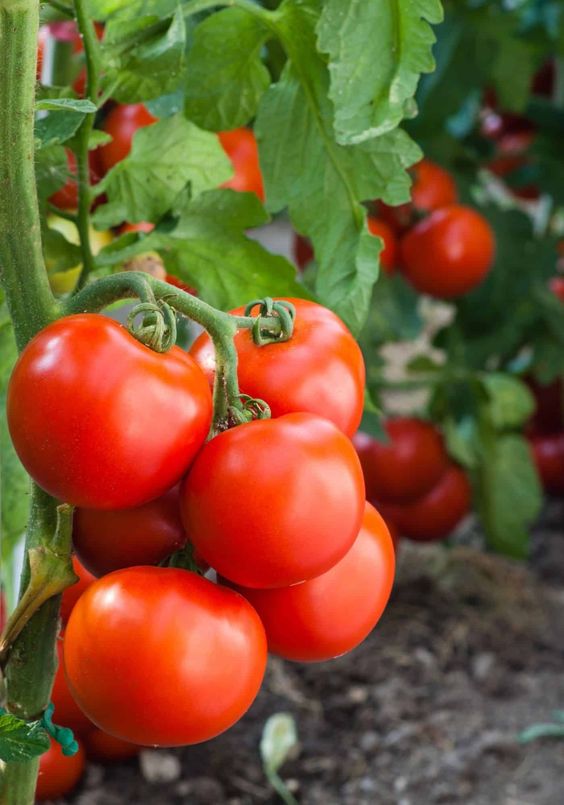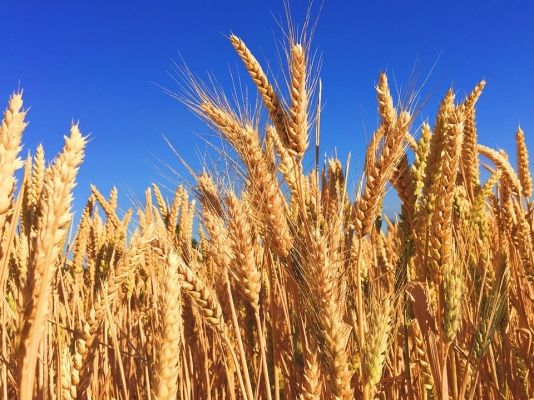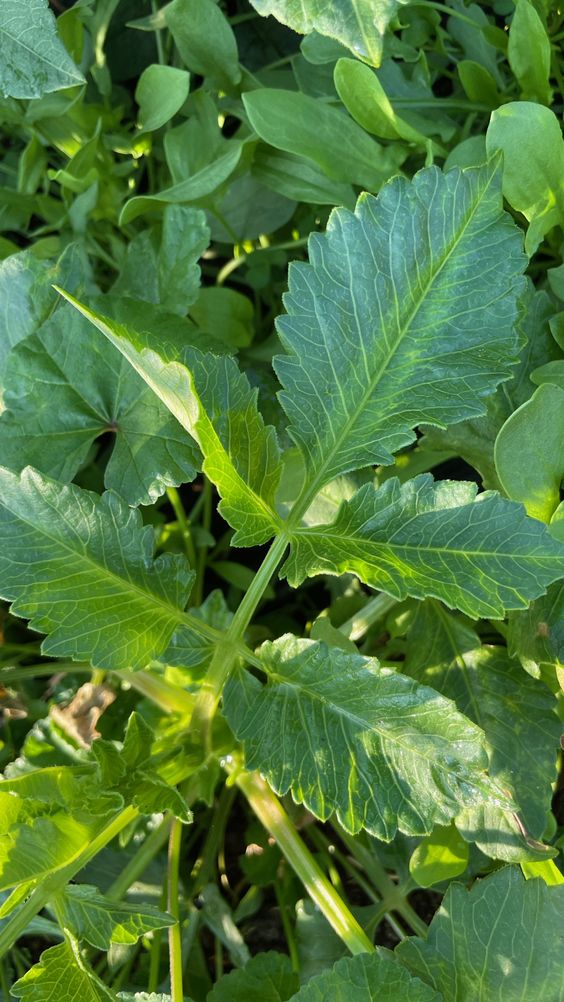Organic Tomato Cultivation: A Guide to Sustainable Production with Smart Agriculture Integration
Organic Tomato Cultivation, a juicy and versatile fruit, has captured hearts and taste buds for centuries. Today, consumers are increasingly seeking not only delicious tomatoes but also those grown with sustainable practices. Organic tomato cultivation offers a solution, fostering a healthy ecosystem while producing vibrant, flavorful tomatoes. This guide delves into the world of organic tomato farming, exploring its benefits, objectives, and the exciting integration of Smart Agriculture technologies.
Contents
- 1 Benefits of Organic Tomato Cultivation
- 2 Objectives of Organic Tomato Production
- 3 Explanation: Organic Tomato Cultivation Practices
- 4 Smart Agriculture Integration: Optimizing Organic Tomato Production
- 5 Smart Agriculture in Action: Practical Applications
- 6 Going Beyond the Basics: Advanced Organic Tomato Cultivation Techniques
- 7 Advantages and Specialties of Organic Tomato Cultivation
Benefits of Organic Tomato Cultivation
Organic Tomato Cultivation boasts a multitude of advantages:
- Environmental Sustainability: By eliminating synthetic pesticides and fertilizers, organic farming protects soil health, reduces water pollution, and promotes biodiversity by encouraging beneficial insects and microorganisms.
- Improved Soil Quality: Organic practices nurture soil fertility through compost application and cover cropping, leading to healthier plants and long-term productivity.
- Enhanced Flavor and Quality: Organic tomatoes often develop richer flavor profiles due to increased focus on natural soil health and balanced nutrient delivery.
- Consumer Demand: As the demand for organic produce rises, organic tomato cultivation provides a lucrative market opportunity for farmers.
Objectives of Organic Tomato Production
Organic Tomato Cultivation farming aims to achieve several key objectives:
- Produce high-quality, healthy tomatoes: The focus is on promoting natural plant growth and resilience, resulting in flavorful and nutritious tomatoes.
- Maintain a healthy ecosystem: By fostering a balanced environment, organic practices encourage beneficial insects and microorganisms to thrive.
- Minimize environmental impact: Reducing synthetic inputs and promoting soil health safeguards the environment for present and future generations.
- Ensure consumer trust: Organic certification provides transparency and builds consumer confidence in the production process.
Explanation: Organic Tomato Cultivation Practices
Organic tomato farming revolves around a holistic approach to plant health and soil vitality. Let’s explore some key practices:
- Site Selection and Preparation: Choosing a sunny location with well-drained, fertile soil is crucial. Organic amendments like compost and aged manure are incorporated to enhance soil quality.
- Seed Selection: Selecting certified organic tomato seeds ensures a healthy foundation for your crop. Heirloom varieties often offer superior flavor profiles.
- Planting and Transplanting: Proper spacing and transplanting techniques promote healthy growth and air circulation.
- Weed Management: Utilizing organic mulching, hand weeding, and cover cropping effectively controls weeds without harming the environment.
- Irrigation: Providing consistent and efficient irrigation is essential, particularly during dry periods. Drip irrigation systems can be a valuable tool in water conservation.
- Nutrient Management: Organic fertilizers like compost tea, fish emulsion, and composted manure provide balanced nutrition for your tomato plants.
- Pest and Disease Control: Organic pest management relies on natural methods like attracting beneficial insects, using insecticidal soaps, and implementing crop rotation techniques.
Smart Agriculture Integration: Optimizing Organic Tomato Production
The rise of Smart Agriculture technologies offers exciting possibilities for organic tomato cultivation. Here’s how:
- Sensor-Based Monitoring: Wireless sensors can monitor soil moisture, temperature, and nutrient levels in real-time, allowing for precise irrigation and fertilization practices.
- Automated Irrigation Systems: Integrating automated irrigation systems with soil moisture sensors ensures optimal water usage, minimizing waste and promoting efficient resource management.
- Precision Nutrient Delivery: Utilizing drip irrigation systems with fertigation capabilities allows for targeted delivery of organic nutrients directly to the plant root zone.
- Weather Monitoring and Disease Prediction: Weather stations can provide valuable data on temperature, humidity, and precipitation patterns. This information, coupled with disease prediction models, enables farmers to proactively prevent outbreaks through organic methods.
- Remote Monitoring and Control: Smart Agriculture platforms offer remote monitoring and control capabilities, allowing farmers to manage their farms from a distance, optimizing efficiency and reducing labor costs.
Uses of Organic Tomatoes,The versatility of the tomato is unparalleled. Here are some of the many ways organic tomatoes can be enjoyed:
- Fresh Eating: Savor the sweet and tangy flavor of organic tomatoes in salads, sandwiches, and as a refreshing snack.
- Cooking: Organic tomatoes are the foundation for numerous delicious dishes, including pasta sauces, salsas, soups, stews, and pizzas.
- Preserving: Canning, drying, and freezing organic tomatoes allow you to enjoy their flavor throughout the year.
Smart Agriculture in Action: Practical Applications
Let’s delve into some practical applications of Smart Agriculture technologies in organic tomato production:
- Sensor-Based Monitoring and Disease Alerts: Wireless sensors can monitor soil moisture, temperature, and even leaf chlorophyll levels. Coupled with advanced algorithms, these sensors can trigger alerts for potential disease outbreaks, allowing for early intervention with organic control methods.
- Variable Rate Irrigation (VRI): VRI systems utilize sensor data to deliver precise irrigation quantities based on specific plant needs within a field. This targeted approach optimizes water usage and minimizes waste, a critical factor in sustainable agriculture.
- Drone Technology: Drones equipped with multispectral cameras can provide valuable insights into crop health. By analyzing the data, farmers can identify areas requiring additional attention or struggling with nutrient deficiencies, enabling them to take corrective actions promptly.
Going Beyond the Basics: Advanced Organic Tomato Cultivation Techniques
This section delves deeper into advanced organic tomato cultivation techniques that can optimize yield, quality, and overall farm management:
- Crop Rotation: Implementing a strategic crop rotation plan disrupts pest life cycles, minimizes disease transmission, and promotes soil health by replenishing nutrients.
- Composting and Manure Management: Mastering the art of composting food scraps, yard waste, and animal manure creates a valuable source of organic nutrients for your tomato plants.
- Integrated Pest Management (IPM): Develop a comprehensive IPM program that utilizes natural predators, beneficial insects, and biological controls alongside organic pesticides to manage pest populations effectively.
- Greenhouse Production: Utilizing greenhouses allows for greater control over environmental factors like temperature, humidity, and light, extending the growing season and potentially increasing yields. However, organic certification guidelines for greenhouse production may differ, so thorough research is crucial.
- Pollination Techniques: Organic tomato production often relies on natural pollinators like bees and bumblebees. Planting flowering companion plants near your tomato crop can attract these beneficial insects and improve pollination rates.
Advantages and Specialties of Organic Tomato Cultivation
Organic Organic Tomato Cultivation offer several advantages over conventionally grown varieties:
- Superior Flavor: Organic practices often lead to a more complex and richer flavor profile due to the focus on natural soil health and balanced nutrient delivery.
- Increased Nutritional Value: Some studies suggest that organically grown produce may contain higher levels of certain antioxidants and beneficial compounds.
- Reduced Chemical Residues: Free from synthetic pesticides and fertilizers, organic tomatoes offer peace of mind for consumers concerned about chemical residue exposure.
Organic Tomato Cultivation with the integration of Smart Agriculture technologies offers a promising path towards a sustainable and productive future for the agricultural sector. This approach empowers farmers to produce flavorful, healthy tomatoes while minimizing environmental impact. By embracing these practices, we can ensure the continued success of organic tomato production and contribute to a healthier planet for generations to come.




